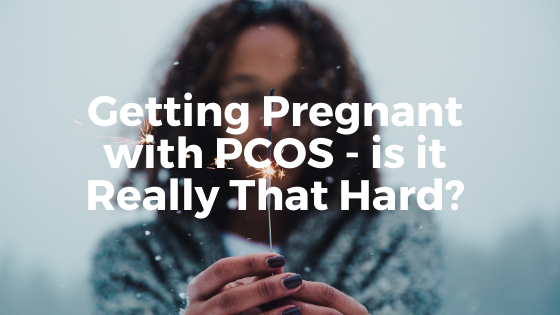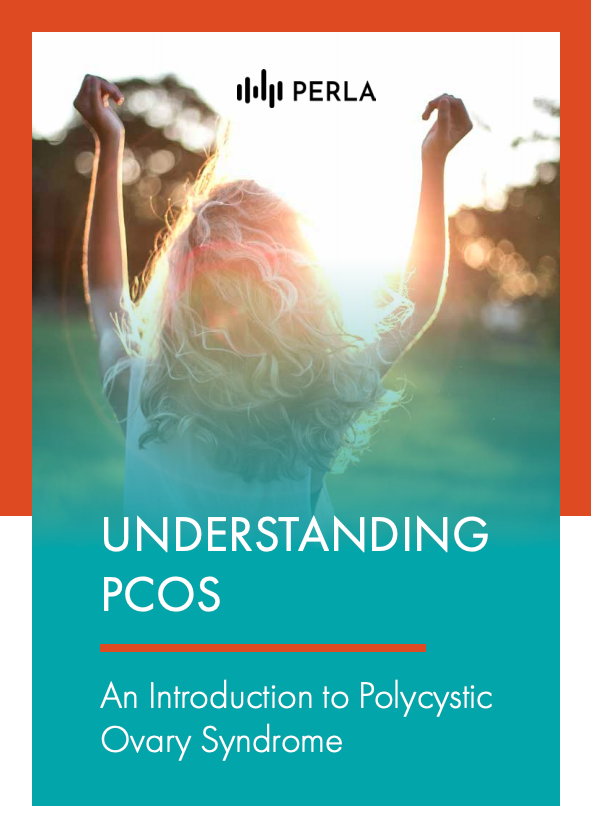If you want to get pregnant and have PCOS, you may have a lot of questions.The good news is that it’s possible to get pregnant even if you are diagnosed with PCOS. However, it can take longer for a woman with PCOS to conceive compared to a woman without PCOS. Why is this the case? And what can be done about it? Let’s learn more about it:
How PCOS affects Fertility
PCOS is the main cause why there is no ovulation (anovulation) in women. Anovulation means that your ovaries are either not or not regularly releasing mature eggs. It is difficult to define the exact cause of anovulation in PCOS.1 There are various hormonal abnormalities within and outside the ovaries that are associated with PCOS.2,3
Being aware about the effects of PCOS on fertility is important in finding the right treatment approach for you and increasing your chances of pregnancy.
It is estimated that infertility could affect about 70-80% of women with PCOS. The American Society for Reproductive Medicine recommends that women with PCOS should be checked for signs of infertility after six months of trying to get pregnant without success if the couple has regular unprotected sexual intercourse (2-3 times a week).4 In case infertility is detected, there are measures that can be taken (see below).
How to Improve your Chances of Getting Pregnant
If you are diagnosed with PCOS, there are several treatment methods available to improve your chances of getting pregnant. Only a small number of PCOS patients will require assisted-reproductive methods to improve their chance of pregnancy. Your doctor will recommend an appropriate treatment plan after assessing your symptoms and overall condition.
Treatment Options for those who are Trying To Conceive5:
Lifestyle Changes
A high body mass index (BMI) can have an impact on the development of PCOS6, according to a 2019 study, and weight gain contributes to worsening symptoms. Fortunately, even a small amount of weight loss through diet and behavior changes can improve symptoms.
If you are overweight or obese, you will be advised to lose weight with a healthy diet and increased physical activity. A loss of 5 to 10% in body weight is associated with improvement of hyperandrogenism and ovulation rate.8
Medications
There are several medications available to induce ovulation in women who are unable to ovulate:
Clomiphene citrate is the first-line treatment for ovulation induction.9 It works similar to the female hormone estrogen, which helps in the development and release of eggs from the ovaries. It is inexpensive, easier to administer, and has fewer side effects.
Gonadotropin injections are the second-line treatment for inducing ovulation in women with PCOS for whom clomiphene citrate is not working.10 These medications contain an active form of FSH, the hormone responsible for the growth of eggs in the ovaries.
Surgery
Laparoscopic ovarian surgery (ovarian drilling) is also considered a second option for infertility in women with PCOS. Because of the invasiveness of the procedure, the need for hospitalization, general anesthesia, high complication risks, and the high cost involved, it is recommended in patients who do not respond to clomiphene and require laparoscopy for another reason (pelvic pain, frequent infection, adnexal tumor, etc.)
Assisted-Reproductive Technology
In vitro fertilization (IVF) is the third-line treatment for infertility in women with PCOS. If there is a tubal blockage (occlusion) in both fallopian tubes and/or the sperm concentration is less than or equal to 5 million, IVF becomes the main treatment option together with lifestyle changes.
According to new research, the success rate of IVF procedure has peaked at one in four. Those who undergo IVF procedures have a 27.1% chance of conceiving.11
Conclusion
A diagnosis of PCOS does not necessarily mean you will struggle to get pregnant. For women with very mild symptoms, infertility is rarely an issue. Those with excess weight and insulin resistance will benefit from a healthy diet and regular exercise to increase the chances of restoring their ovarian function. If you are trying to conceive and nothing seems to be working, get in touch with your GP and PCOS care team, as they can help you find the best treatment approach for your specific situation, or put you in touch with a fertility expert.
Sources:
- Legro RS, Driscoll D, Strauss 3rd JF, Fox J, Dunaif A. Evidence for a genetic basis for hyperandrogenemia in polycystic ovary syndrome. Proc Natl Acad Sci U S A. 1998;95:14956–60.
- Palomba S. Infertility in Women with Polycystic Ovary Syndrome: Pathogenesis and Management.; 2018.
- Abbara A, Eng PC, Phylactou M, et al. Anti-Müllerian hormone (AMH) in the Diagnosis of Menstrual Disturbance Due to Polycystic Ovarian Syndrome. Front Endocrinol (Lausanne). 2019;10:656. Published 2019 Sep 26. doi:10.3389/fendo.2019.00656
- Definitions of infertility and recurrent pregnancy loss: a committee opinion. Fertility and Sterility. 2013;99(1):63. doi:10.1016/j.fertnstert.2012.09.023
- Melo AS, Ferriani RA, Navarro PA. Treatment of infertility in women with polycystic ovary syndrome: approach to clinical practice. Clinics (Sao Paulo). 2015;70(11):765-769. doi:10.6061/clinics/2015(11)09
- Brower MA, Hai Y, Jones MR, et al. Bidirectional Mendelian randomization to explore the causal relationships between body mass index and polycystic ovary syndrome. Human Reproduction. 2019;34(1):127-136. doi:10.1093/humrep/dey343
- Copp T, Hersch J, Muscat DM, et al. The benefits and harms of receiving a polycystic ovary syndrome diagnosis: a qualitative study of women’s experiences. Hum Reprod Open. 2019;2019(4). doi:10.1093/hropen/hoz026
- The Thessaloniki ESHRE/ASRM-Sponsored PCOS Consensus Workshop Group. Consensus on infertility treatment related to polycystic ovary syndrome. Human Reproduction. 2008;23(3):462-477. doi:10.1093/humrep/dem426
- Perales-Puchalt A, Legro RS. Ovulation induction in women with polycystic ovary syndrome. Steroids. 2013;78(8):767-772. doi:10.1016/j.steroids.2013.05.005
- Weiss NS, Kostova E, Nahuis M, Mol BWJ, van der Veen F, van Wely M. Gonadotropins for ovulation induction in women with polycystic ovary syndrome. Cochrane Gynaecology and Fertility Group, ed. Cochrane Database of Systematic Reviews. Published online January 16, 2019. doi:10.1002/14651858.CD010290.pub3
- De Geyter C, Calhaz-Jorge C, Kupka MS, et al. Art in Europe, 2014: results generated from European registries by ESHRE: The European IVF-monitoring consortium (Eim) for the European society of human reproduction and embryology(ESHRE). Hum Reprod. 2018;33(9):1586-1601. doi:10.1093/humrep/dey242


